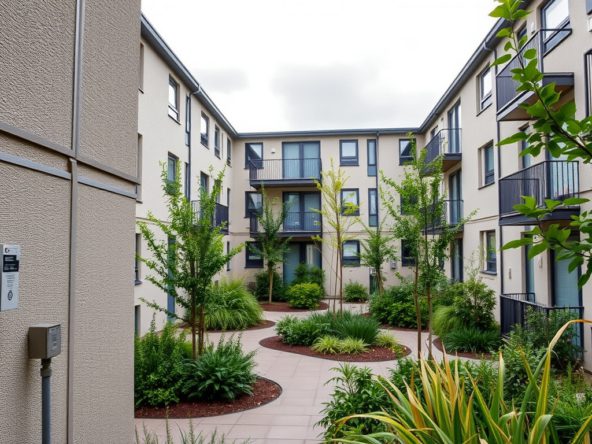Navigating the world of rental agreements in the UK can be daunting for both new and seasoned renters. Whether you are looking for a trendy flat in London or a quaint cottage in the countryside, understanding the intricacies of rental agreements in the UK is crucial for a smooth tenancy experience. This essential guide will walk you through the various types of rental agreements, highlight key terms and conditions you should be aware of, and outline the rights and responsibilities of both tenants and landlords. By the end, you’ll be equipped with the knowledge to negotiate effectively, resolve common issues, and ultimately find your next dream room or apartment at moreporter.co.uk.
Key Takeaways
- A rental agreement is a legally binding contract that outlines the terms of renting a property in the UK.
- There are various types of rental agreements in the UK, including assured shorthold tenancies and periodic tenancies.
- Understanding key terms and conditions in rental agreements is crucial for both tenants and landlords to avoid misunderstandings.
- Both parties have specific rights and responsibilities, including maintenance obligations and payment timelines.
- Negotiating rental agreements can lead to better terms, and being aware of common disputes can help prevent conflicts.
What is a Rental Agreement?
A rental agreement is a legally binding document that outlines the terms and conditions under which a property is rented from a landlord to a tenant. In the context of rental agreements UK, these contracts are crucial for establishing the specific rights and responsibilities of both parties. A well-drafted rental agreement typically includes essential details like the duration of the lease, rental payment amounts, deposit requirements, maintenance obligations, and guidelines for terminating the agreement. Understanding the nuances of rental agreements is vital for tenants and landlords alike, ensuring a smooth rental experience while safeguarding everyone’s interests. If you’re looking to rent a property in the UK, exploring more about rental agreements can help you navigate the process effectively.
Types of Rental Agreements in the UK
When considering a new place to stay, it’s essential to understand the various types of rental agreements in the UK, as these agreements govern your rights and responsibilities as a tenant. Primarily, there are two main types: assured shorthold tenancies (ASTs) and assured tenancies. ASTs are the most common rental agreements in the UK, typically lasting six months to a year, allowing landlords to end the agreement relatively easily with proper notice. On the other hand, assured tenancies offer more security and stability, protecting tenants from eviction under some circumstances. Understanding these distinctions can help you choose the right accommodation that fits your needs. Whether you are looking to rent a flat in the city or a room in a shared house, having a grasp on rental agreements in the UK is key to ensuring a smooth renting experience. To find your next perfect room in the UK, be sure to explore hmoreporter.co.uk.
‘The best way to predict the future is to create it.’ — Peter Drucker
Key Terms and Conditions in Rental Agreements
When navigating the landscape of rental agreements in the UK, it’s crucial to familiarize yourself with key terms and conditions that can profoundly impact your renting experience. Most rental agreements in the UK will outline essential information, such as the duration of the lease, the rental amount, and the responsibilities of both landlords and tenants. Familiar terms include ‘notice periods,’ which specify how much advance warning must be given to terminate the agreement; ‘deposit protection,’ ensuring your security deposit is held in a government-approved scheme; and ‘repairs and maintenance’ clauses, which detail who is responsible for upkeep. Understanding these vital elements allows you to protect your rights and make informed decisions. For those considering a new rental, exploring options at hmoreporter.co.uk could lead you to your ideal next room in the UK, offering a hassle-free renting experience with clear agreements.
Rights and Responsibilities of Tenants and Landlords
When entering into rental agreements in the UK, both tenants and landlords have specific rights and responsibilities that are vital to understand for a harmonious living arrangement. Tenants are entitled to a safe and habitable space, meaning all essential services such as heating, water, and electricity must be in good working order. Moreover, tenants have the right to privacy, meaning landlords cannot enter the rented property without proper notice. On the flip side, landlords have the right to receive rent payments in a timely manner and to retain possession of the property after the agreement ends, provided they follow proper legal procedures. Both parties are responsible for maintaining the property, where tenants should keep their living area clean and report any issues, while landlords must ensure repairs are promptly addressed. Understanding your rights and responsibilities under the rental agreements in the UK can prevent many disputes and enhance the overall rental experience. For more insights on finding your perfect rental property, be sure to visit hmoreporter.co.uk.
How to Negotiate a Rental Agreement
Negotiating a rental agreement in the UK can significantly affect your rental experience, so it’s important to approach it thoughtfully. Start by doing your research on the average rental prices in your chosen area to ensure you’re informed about fair market rates. When you contact the landlord or estate agent, express genuine interest in the property and ask thoughtful questions that demonstrate your seriousness. Be clear about your budget and any specific needs you may have, as this sets the stage for a constructive conversation. It’s also wise to understand the terms of rental agreements UK typically include, such as notice periods and deposit requirements, to effectively discuss any points you might want to negotiate, such as rent reductions or the inclusion of utilities. Remember that flexibility can go both ways—be open to compromise to reach a mutually beneficial agreement. By adopting a respectful yet assertive approach, you can create an environment for effective negotiations that lead to a favorable rental agreement.
Feel free to contact us via WhatsApp, social media, or email.
Always find the best rooms to rent in the UK at HMO Reporter.






